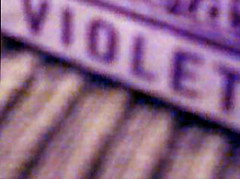Castle, Terry. Noel Coward and Radclyffe Hall: Kindred Spirits. New York: Columbia University Press, 1996.
Coward, Noel. Three Plays: Blithe Spirit, Hay Fever, Private Lives. Intro. Philip Hoare. New York: Vintage Books, 1999.
Noel Coward is fun and witty and perfectly entertaining. Blithe Spirit, Hay Fever, and Private Lives are all domestic comedies that unsettle the traditional family and spoof monogamous couplehood. Each play centers around a couple (or in the case of Private Lives, two couples, who are already married and established. Of course, things go horribly wrong from there and no one ends up happily married at all. Each of these plays is a delightful break from the typical plot of today, in which, in the face of ridiculous circumstances, two people inevitably meet and fall in love.
Terry Castle's tiny little book is not quite as much fun as Coward's play, but it is a fun little academic exercise. At 110 pages, t's really not much more than an extended article with a lot of gorgeous pictures of Coward and Hall. Castle's thesis is a bit dubious; she argues that Coward and Hall were friends and were influenced by each other, which she uses to suggest a larger argument that gay men and lesbians often have interrelated lives. She posits that we often prefer to trace the histories of gay men and lesbians separately and fail to offer enough critical attention to the influences they have on each other. Of course, the identity politics are from the beginning problematic (one might argue for Hall's transgendered identification or even suggest the Coward could be bisexual) and the arguments a little specious. Basically, Castle relies on the claim that the character of Brockett in Hall's Well of Lonliness strongly resembled Coward and that the incident upon which Coward's Blithe Spirit is based strongly resembled an incident in Hall's life in which she and Una Troubridge held seances in which they communed with the spirit of Mabel Batten, Hall's former lover. It's a delightful and fun argument, even if I'm not sure that I buy it. It is, if nothing else, a fun little introduction to the lives of Coward and Hall and the milieu in which they lived. Though I'm not entirely sure about the specifics of her subject, I find the focus on the historical interrelationships between queer folks fascinating. And she's got quite a vocabulary! I found myself looking up words like "caliginous" and actually learning some new words! Despite the criticism, I really enjoyed this book.
My 2025 in Review
-
Hi Friends! Happy Holidays! Here is my 2025 rundown.
Another year of being a full time playwright! It's been about 2 and a half
years now. I feel li...
5 days ago

0 comments:
Post a Comment